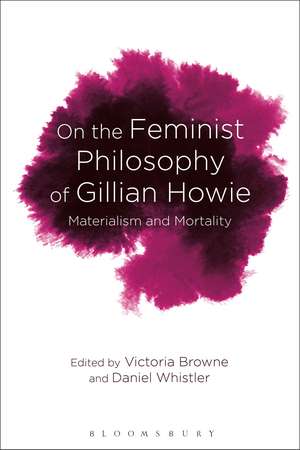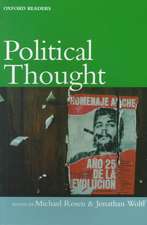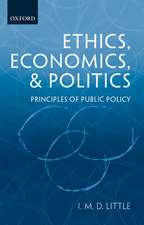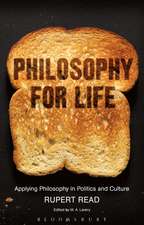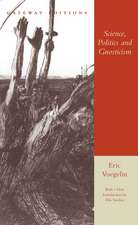On the Feminist Philosophy of Gillian Howie: Materialism and Mortality
Editat de Daniel Whistler, Victoria Browneen Limba Engleză Hardback – 19 oct 2016
| Toate formatele și edițiile | Preț | Express |
|---|---|---|
| Paperback (1) | 238.94 lei 43-57 zile | |
| Bloomsbury Publishing – 18 apr 2018 | 238.94 lei 43-57 zile | |
| Hardback (1) | 775.43 lei 43-57 zile | |
| Bloomsbury Publishing – 19 oct 2016 | 775.43 lei 43-57 zile |
Preț: 775.43 lei
Preț vechi: 1113.88 lei
-30% Nou
Puncte Express: 1163
Preț estimativ în valută:
148.43€ • 161.28$ • 124.76£
148.43€ • 161.28$ • 124.76£
Carte tipărită la comandă
Livrare economică 21 aprilie-05 mai
Preluare comenzi: 021 569.72.76
Specificații
ISBN-13: 9781474254120
ISBN-10: 1474254128
Pagini: 304
Dimensiuni: 156 x 234 x 28 mm
Greutate: 0.61 kg
Editura: Bloomsbury Publishing
Colecția Bloomsbury Academic
Locul publicării:London, United Kingdom
ISBN-10: 1474254128
Pagini: 304
Dimensiuni: 156 x 234 x 28 mm
Greutate: 0.61 kg
Editura: Bloomsbury Publishing
Colecția Bloomsbury Academic
Locul publicării:London, United Kingdom
Caracteristici
The collection establishes a compelling way of understanding and doing philosophy as a mode of politically and socially engaged, embodied practice
Notă biografică
Victoria Browne is Lecturer in Politics at Oxford Brookes University, UK. She has published articles on feminist philosophy, temporality, and memory, and is the author of Feminism, Time and Nonlinear History (2014).Daniel Whistler is Senior Lecturer in Philosophy at the University of Liverpool, UK, and Humboldt Research Fellow at the Westfälische-Wilhelms Universität, Münster, Germany. He is the author of Schelling's Theory of Symbolic Language (2013) and co-author of The Right to Wear Religious Symbols (2013).
Cuprins
AcknowledgementsNotes on the ContributorsEditors' Introduction Gillian Howie's Philosophies of Embodied Practice, Victoria Browne and Daniel WhistlerPart One: Feminism, Materialism, Critical TheoryChapter One When Feminist Philosophy Met Critical Theory: Gillian Howie's Historical Materialism, Stella SandfordChapter Two Feminist Knowledge and Feminist Politics: Reflections on Howie and Late Feminism, Kimberly HutchingsChapter ThreeBetween Negative Dialectics and Sexual Difference: Generative Conjunctures in the Thinking of Gillian Howie, Joanna HodgeChapter Four Scholarly Time and Feminist Time: Gillian Howie on Education and Intellectual Inheritance, Victoria BrowneChapter Five The Cloistered Imaginary, Daniel WhistlerPart Two: Living with DyingChapter Six How to Think about Death: Living with Dying, Gillian HowieChapter Seven Gillian Howie's Situated Philosophy: Theorizing Living and Dying 'In Situation', Christine BattersbyChapter Eight The Relationality of Death, Alison StoneChapter Nine Reflections on 'Living up to Death', Morny JoyChapter Ten Learning to Die, Finally, Claire ColebrookChapter Eleven 'What the Living Do': Poetry's Death and Dying, Deryn Rees-JonesChapter Twelve Cancer Sucks: Photography and the Representation of Chronic Illness, Nedim HassanChapter Thirteen Movie-making as Palliative Care, Amy Hardie Chapter Fourteen Experience and Performance whilst Living with Disability and Dying: Disability Art as a Pathway to Flourishing, Janet Price and Ruth GouldIndex
Recenzii
The volume's strongest point is its trajectory: earlier essays engage deeply with Howie's published and unpublished work, and later chapters move beyond her work into discussions inspired by her thoughts ... Browne and Whistler's volume takes Howie's philosophy into the future.
[A] rich and vibrant book of writings.
This collection offers a fitting tribute to the variety of themes that formed the life's work of Gillian Howie. The very richness of the contributions allow for the kind of flourishing discourse Howie did so much to promote. A vital read.
Gillian Howie's all too brief philosophical life was dominated by the struggle for emancipation, both personal and political. This distinguished and deeply engaged collection of essays covers with critical sympathy the remarkable scope of her work, and will be invaluable as an introduction to the alternative and feminist philosophical tradition Howie was living up to her death.
[A] rich and vibrant book of writings.
This collection offers a fitting tribute to the variety of themes that formed the life's work of Gillian Howie. The very richness of the contributions allow for the kind of flourishing discourse Howie did so much to promote. A vital read.
Gillian Howie's all too brief philosophical life was dominated by the struggle for emancipation, both personal and political. This distinguished and deeply engaged collection of essays covers with critical sympathy the remarkable scope of her work, and will be invaluable as an introduction to the alternative and feminist philosophical tradition Howie was living up to her death.
